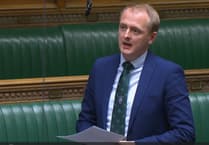THE way Wales is governed isn’t working well and major reform is needed, according to a group of experts appointed by the Welsh Government.
Chaired jointly by Professor Laura McAllister of Cardiff University and the former Archbishop of Canterbury Dr Rowan Williams, the Independent Commission on the Constitutional Future of Wales has released an interim report which concludes that the nation has three realistic options: a beefed-up Senedd with more powers; a fundamental change to the UK, turning it into a federal state; or independence.
The report spells out 10 drawbacks to the current devolution settlement which, it says, makes continuation of the status quo untenable,
They include the current settlement being “unstable”, the “fragility of intergovernmental relations”, and apart from tax varying powers, the scope of devolved powers has remained largely in line with the executive powers of the pre-devolution Wales Office.”
The UK Government “has not engaged with proposals to extend devolution, in spite of recommendations based on practical experience of front line delivery,” the report said.
There are also “problems with the system for financing devolution”, with “the ability of the Welsh Government to manage its budget for the long term is constrained by detailed Treasury controls.”
“The outlook for the Welsh economy within a UK economy which is one of the most unequal in Europe is highly uncertain,” the report added.
In the final phase of its work, the Commission intends to look in detail at what it sees as the three realistic options for change.
The report rejects abolishing the Senedd as an option, stating: “It would mean that Wales would revert to being governed from Westminster and Whitehall. In a Parliament of 650 MPs, Wales would be represented by 40 MPs, falling to 32 once current legislation is implemented.
“If the pre-1999 governance arrangements were put in place, executive decisions for Wales, including budget allocations and public appointments, would be taken by a member of the UK Cabinet, accountable to Parliament, with scrutiny carried out by the single select committee dealing with Welsh Affairs.”
Dr Williams said: “Despite investment, the Welsh economy still lags, which indicates there is a structural problem that needs to be addressed. It tells us that the Welsh economy isn’t doing well under the status quo.
“But what, if any, constitutional options would enable Wales to become more prosperous and improve the lives of people in Wales?
“This is something we have to continue to explore.”
The Commission, will continue to consult and will publish its final report in late 2023.




